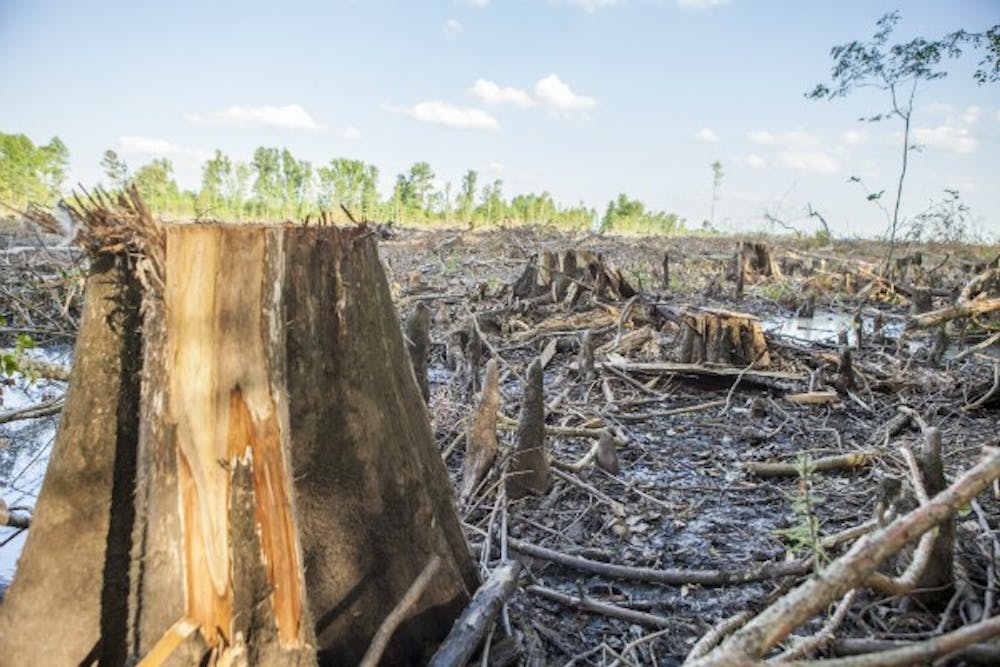A letter signed by over 100 scientists across the world, including professors at UNC, urged Gov. Roy Cooper to implement forest restoration in his climate action plan, and immediately address the environmental problems caused by the expanding wood pellet industry.
Dogwood Alliance, a forest-protection advocacy group based in Asheville, penned the letter in response to a proposed wood pellet mill in Hamlet. Enviva, the world’s largest producer of wood pellets, looks to make this their fourth facility in North Carolina alone.
These wood pellets would be shipped to the United Kingdom, where they would be burned for biofuel as an alternative to coal. The idea is that burning wood can be a carbon-neutral, renewable energy source, as trees are one of the most effective absorbers of carbon from the atmosphere. The scientific community calls this a false assumption.
“They call it a renewable source because you can give the trees a chance to grow back and cancel out the carbon we’re releasing through burning,” said Tim Searchinger, research scholar at Princeton University. “That is true if you let the trees fully grow back. But for various reasons, including the inefficiencies because trees grow slowly, you’re actually increasing the amount of carbon in the atmosphere for decades.”
The burning of wood itself is another issue that scientists who signed onto the letter see in this industry.
“At the immediate effect, the amount of carbon emissions per gram of material is higher for wood than coal,” said Norman Christensen, professor emeritus and former dean of the Nicholas School of the Environment at Duke University.
Christensen noted that coal takes millions of years to “grow back” while trees can do so in a much shorter period of time. However, this requires a commitment to ensuring the full growth of all trees that are cut. William Schlesinger, another professor emeritus and former dean of the Nicholas School, said this is a difficult commitment to fulfill.
“If you gave me a forest and we cut it down and burned it, and then you gave me 100 years of assured regrowth on that site, where no one would come in at 70 years and cut it again or inadvertently burn it, that could arguably be carbon-neutral,” Schlesinger said. “The problem we have is when they cut forests, burn them, replant young forests or don’t replant at all, and burn the resulting vegetation again in 20 years. The result is that you don’t repay that carbon debt that you put into the atmosphere.”
This industry poses more risks than just carbon emissions and increased deforestation. Rachel Weber, grassroots political organizer for Dogwood Alliance, said in Sampson County where another Enviva facility operates, residents took air quality samples before and after the facility’s construction. The results found a 75 percent increase in particulate matter in the air compared to pre-operative levels.



